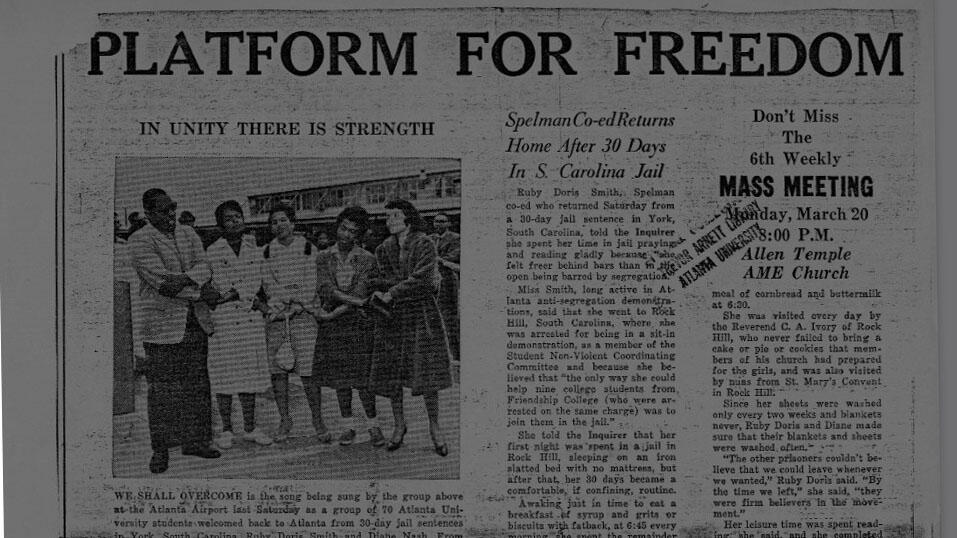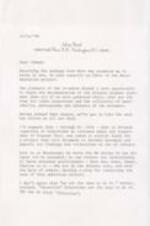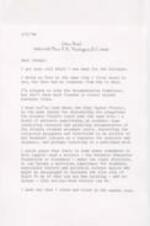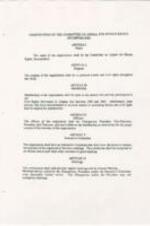
Atlanta Student Movement Collection
This collection documents the Atlanta Student Movement during the Civil Rights Era. It highlights student activism in the Atlanta University Consortium (AUC); Clark College, Morris Brown, Morehouse College, Atlanta University, and Spelman College. The collection includes newspaper and journal articles, flyers, reports, photographs, and correspondence by and about students from the AUC schools. Of note are copies of An Appeal for Human Rights written by student leaders, which set forth the student's grievances, rights, and aspirations as well as their dissatisfaction with the status quo conditions of segregation and discrimination and the slow pace at which inherent human and civil rights were being meted out to African Americans. The Appeal was published as a full-page ad in the March 9, 1960 editions of the Atlanta Constitution, Atlanta Journal, and Atlanta Daily World. It was subsequently published in the New York Times, providing national awareness of student activism in the civil rights struggle in Atlanta. The issuance of the Appeal was followed by sit-ins and pickets at specifically targeted businesses, government and transportation facilities in Atlanta and Fulton County, Georgia, and kneel-ins at churches. The participants in the Atlanta student movement organized commemorative reunions, 1990 and 2000 to re-examine the civil rights movement and discuss current efforts and projections for the future. Programs, minutes, correspondence, and news articles from the reunions are included in the collection.
At the AUC Robert W. Woodruff Library, we are always striving to improve our digital collections. We welcome additional information about people, places, or events depicted in any of the works in this collection. To submit information, please contact us at DSD@auctr.edu.




